A-Z GEMSTONES
A-Z GEMSTONES

BLUE TOURMALINE
Blue Tourmaline strengthens communication skills and psychic awareness. Assists in relating to others lovingly. Helps to live in harmony with your environment. Guides us into service. Tourmaline clears negative emotions and thoughts and opens us to joy and honesty. Aids in the receptivity of inspiration, to flow into the mind. Radiates light protection for wearer.
Blue Tourmaline (Indicolite) Gemstone Meaning:
Blue Tourmaline, also called indicolite or indigolite, is a very rare and special kind of tourmaline. The word Indicolite is derived from the Latin word, meaning ‘indicum plant’. The soothing blue color promotes a calming effect, and offers relief from stress. Blue Tourmaline brings joy and happiness. It promotes harmony, tolerance and kindness.
Some Uses Are: to develop psychic gifts to open doors and communication with the spiritual realm to facilitate deep meditation to better explore and understand past lives
Combine Blue Tourmaline with these stones: Blue Kyanite, Lapis Lazuli, Aqua Aura, Sodalite
Chakras: Third Eye, Throat Astrological sign: Leo Element: Water Element, Wind Element

BROWN TOURMALINE (DRAVITE)
Dravites or Dravide are excellent for grounding, clearing and opening the connection between the Earth and your body. It protects and shields from negativity that may be directed towards or surrounding you. This Tourmaline brings peace when in a large group and helps with healing in dysfunctional family dynamics. Brown Tourmaline clears your auric field, opening the path for the aligning your energies to its optimum. Plants love Dravite and seem to flourish in its presence.
Dravite (Champagne Tourmaline) Meaning:
Dravite is a brown variety of Tourmaline. It is an ideal stone for self-healing, aids in finding emotional strength and self-acceptance. Dravite inspires courage and persistence. It calms and soothes, grounding and stabilizing the inner self. Use Dravite with these compatible stones to clear and ground the root chakra and provide psychic protection: Black Tourmaline Jet Black Obsidian Smokey Quartz
Chakras: Heart Chakra, Root Chakra Astrological sign: Aries Color: Deep golden brown Element: Earth, Storm Energies: Power, Love
More Posts from Saients and Others

Vera Rubin, the groundbreaking astrophysicist who discovered evidence of dark matter, died Sunday night at the age of 88, the Carnegie Institution confirms.
Rubin did much of her revelatory work at Carnegie. The organization’s president calls her a “national treasure.”
In the 1960s and 1970s, Rubin was working with astronomer Kent Ford, studying the behavior of spiral galaxies, when they discovered something entirely unexpected — the stars at the outside of the galaxy were moving as fast as the ones in the middle, which didn’t fit with Newtonian gravitational theory.
The explanation: Dark matter.
Adam Frank, an astrophysicist who writes for NPR’s 13.7 blog, described dark matter by comparing it to a ghost in a horror movie. You can’t see it, he writes — “but you know it’s with you because it messes with the things you can see.”
Adam continued:
“It was Vera Rubin’s famous work in the 1970s that showed pretty much all spiral galaxies were spinning way too fast to be accounted for by the gravitational pull of the their ‘luminous’ matter (the stuff we see in a telescope). Rubin and others reasoned there had to be a giant sphere of invisible stuff surrounding the stars in these galaxies, tugging on them and speeding up their orbits around the galaxy’s center.”
Vera Rubin, Who Confirmed Existence Of Dark Matter, Dies At 88

The world’s smallest snowman is only 2.7 microns tall (for comparison, a human hair is 75 microns thick). To create it, scientists stacked 3 tiny silica spheres, added a nose and arms made of platinum, and cut the eyes and mouth with a focused ion beam. Source


Cristobalite, Hematite
SiO2, Fe2O3
Locality:
Caspar quarry, Bellerberg volcano, Ettringen, Mayen, Eifel, Rhineland-Palatinate, Germany
An interesting homoepitactic intergrowth from brown and black hematite
Photo: Michael Förch
Cristobalite is a silica polymorph that is thermodynamically stable only at temperatures above 1470°C, up to the melting point at 1705°C, at atmospheric pressures. It commonly metastably persists or even forms at much lower temperatures in silica-rich volcanic and sedimentary environments. It can form crystals in cavities, probably vapour-deposited, or spherulites in obsidian or other silicic volcanics.
Hematite is rather variable in its appearance - it can be in reddish brown, ocherous masses, dark silvery-grey scaled masses, silvery-grey to black crystals, and dark-grey masses, to name a few. What they all have in common is a rust-red streak.
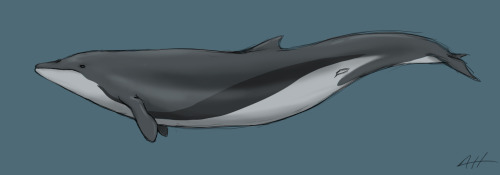
As a paleo-artist, one of my biggest pet peeves are prehistoric whales reconstructed not as whales but as sinewy, snarling, shrink-wrapped marine reptiles. It’s just not a plausible reconstruction, even if it’s highly speculative, and it paints an incorrect image in the public eye. Granted, this is a struggle I’ve exlpored in all forms of paleo-art and reconstructive illustration. But the whales have really been getting to me recently.
Here are some recontructions of Basilosaurus, if you don’t know what I mean (one by Karen Carr, the other by an artist I could not determine):


These snakey, reptilious reconstructions may stem from the fact that Basilosaurus, one of the first early cetaceans to be found, was believed to be a reptile when first discovered (hence the name). Maybe we simply haven’t fully shaken that mindset.
But still! Even the damn Smithsonian, which has such a wonderful collection of ancient cetaceans, is at fault in this:

Don’t even get me started on their recently-closed dinosaur hall. Thank the lord they’re finally renovating that dated piece of crap.
I have struggled to find a way to reconstruct these animals so that they are just a little bit more believeable. Up top I’ve done a really really quick sketch of Dorudon. I tried to not only make its body more streamlined and whale-like (because Dorudon has a lovely, almost but not quite modern-looking skeleton), but I also tried to give it markings similar to what we find on modern cetaceans for camouflage. Because hey, who’s to say they didn’t have ‘em? I tried to make them familiar but not directly copied from any modern species.
Aaaaand end rant.
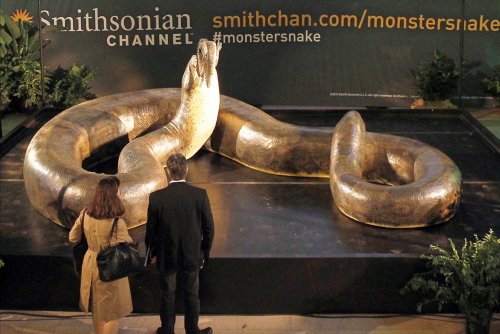
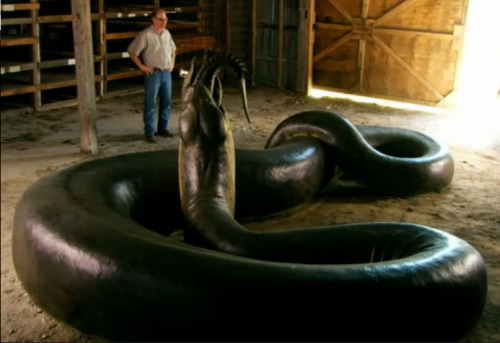
The Titanoboa, is a 48ft long snake dating from around 60-58million years ago. It had a rib cage 2ft wide, allowing it to eat whole crocodiles, and surrounding the ribcage were muscles so powerful that it could crush a rhino. Titanoboa was so big it couldn’t even spend long amounts of time on land, because the force of gravity acting on it would cause it to suffocate under its own weight.
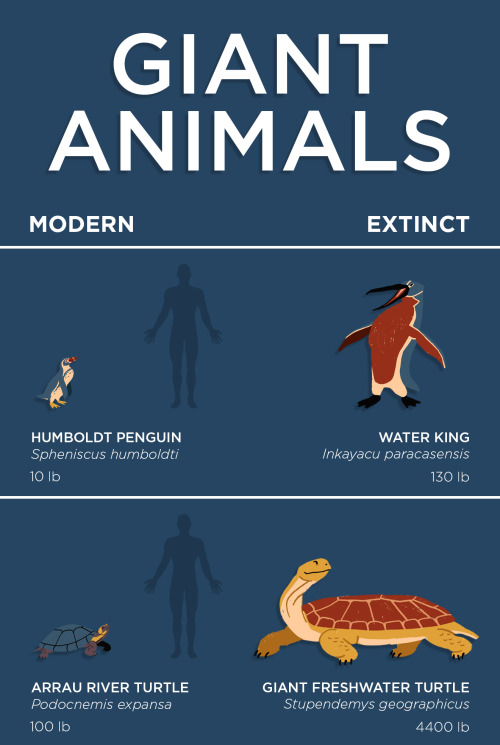
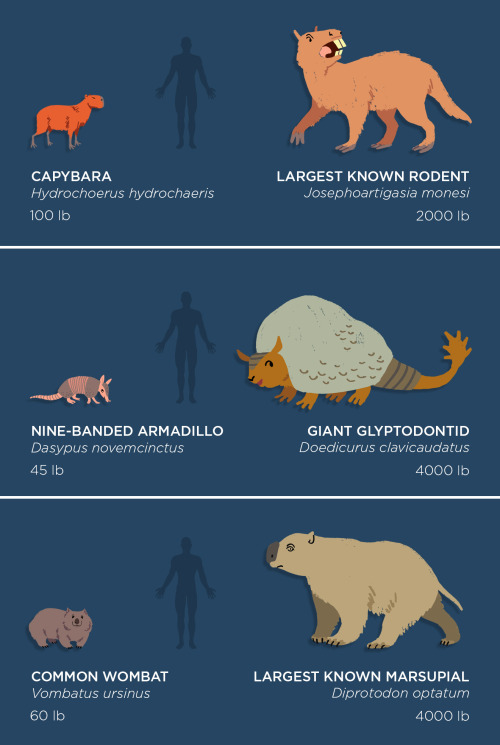
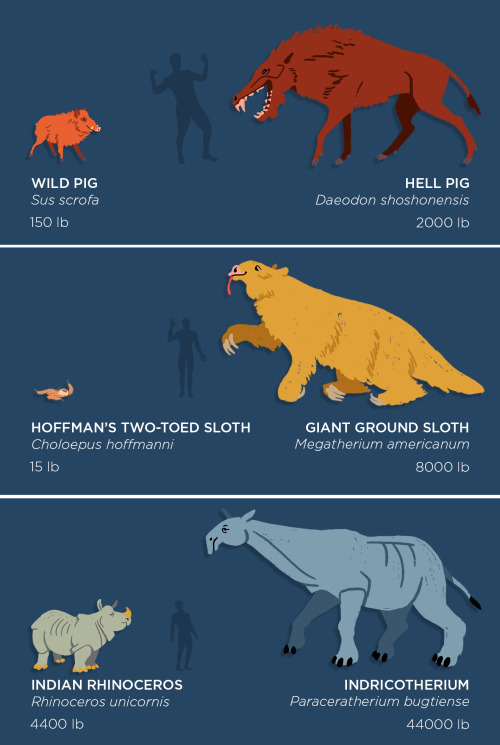
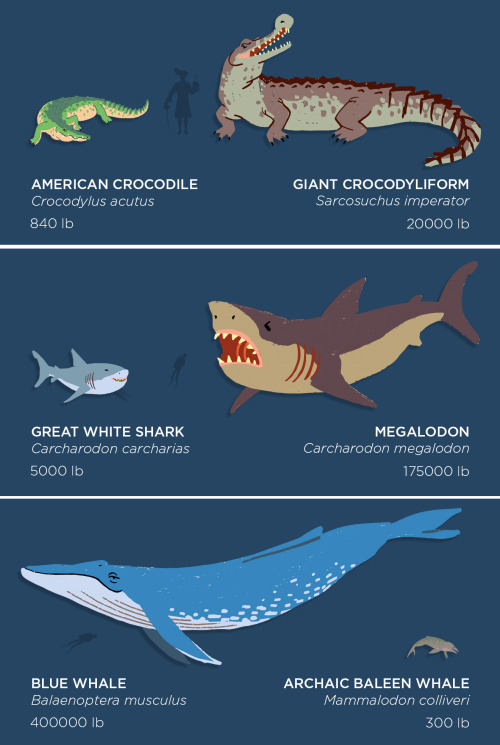

The origin of the universe was not by a singularity, since in a singularity, the laws of nature are not valid or do not exist,
-
 prisionero24601 liked this · 7 years ago
prisionero24601 liked this · 7 years ago -
 emce1984 reblogged this · 7 years ago
emce1984 reblogged this · 7 years ago -
 emce1984 liked this · 7 years ago
emce1984 liked this · 7 years ago -
 ayanadanielle7 liked this · 7 years ago
ayanadanielle7 liked this · 7 years ago -
 asteriashydivinationandmagi-blog liked this · 7 years ago
asteriashydivinationandmagi-blog liked this · 7 years ago -
 onlyreikithings-blog liked this · 7 years ago
onlyreikithings-blog liked this · 7 years ago -
 reikifans-blog liked this · 7 years ago
reikifans-blog liked this · 7 years ago -
 reikizone-blog liked this · 7 years ago
reikizone-blog liked this · 7 years ago -
 slimeysnailbabey liked this · 7 years ago
slimeysnailbabey liked this · 7 years ago -
 spiritualgurutiff liked this · 8 years ago
spiritualgurutiff liked this · 8 years ago -
 saients reblogged this · 8 years ago
saients reblogged this · 8 years ago -
 brokentowels liked this · 8 years ago
brokentowels liked this · 8 years ago -
 beau-rebloga-coisas liked this · 8 years ago
beau-rebloga-coisas liked this · 8 years ago -
 usagi-majyo reblogged this · 8 years ago
usagi-majyo reblogged this · 8 years ago -
 storm-in-the-room reblogged this · 8 years ago
storm-in-the-room reblogged this · 8 years ago -
 apex-life-blog reblogged this · 8 years ago
apex-life-blog reblogged this · 8 years ago -
 apex-life-blog liked this · 8 years ago
apex-life-blog liked this · 8 years ago -
 spaceandwitches reblogged this · 8 years ago
spaceandwitches reblogged this · 8 years ago -
 projectstar-wa liked this · 8 years ago
projectstar-wa liked this · 8 years ago -
 stardust-speedway6 liked this · 8 years ago
stardust-speedway6 liked this · 8 years ago -
 atlas-caeruleus liked this · 8 years ago
atlas-caeruleus liked this · 8 years ago -
 toogreenart liked this · 8 years ago
toogreenart liked this · 8 years ago -
 squirmlegender liked this · 8 years ago
squirmlegender liked this · 8 years ago -
 solarflicker liked this · 8 years ago
solarflicker liked this · 8 years ago -
 thefoodwiththedood liked this · 8 years ago
thefoodwiththedood liked this · 8 years ago -
 christmas-plant liked this · 8 years ago
christmas-plant liked this · 8 years ago -
 eternalflamebaby7-blog liked this · 8 years ago
eternalflamebaby7-blog liked this · 8 years ago -
 gemsonacritiquehub reblogged this · 8 years ago
gemsonacritiquehub reblogged this · 8 years ago -
 jazzie0811 liked this · 8 years ago
jazzie0811 liked this · 8 years ago -
 hsl-pho3niks liked this · 8 years ago
hsl-pho3niks liked this · 8 years ago -
 knowingsmile liked this · 9 years ago
knowingsmile liked this · 9 years ago -
 aquatic-enchanter reblogged this · 9 years ago
aquatic-enchanter reblogged this · 9 years ago -
 wahrnehmungsverlust liked this · 10 years ago
wahrnehmungsverlust liked this · 10 years ago -
 granny-e liked this · 10 years ago
granny-e liked this · 10 years ago -
 lilac-astranaut-blog liked this · 10 years ago
lilac-astranaut-blog liked this · 10 years ago -
 autistic-goblin666 liked this · 10 years ago
autistic-goblin666 liked this · 10 years ago -
 2peacewithin reblogged this · 10 years ago
2peacewithin reblogged this · 10 years ago -
 aramblingredheadraisingaruckus reblogged this · 10 years ago
aramblingredheadraisingaruckus reblogged this · 10 years ago
Stardate: 2258.42...or, uh, 4... Whatever. Life is weird, at least we've got science.
75 posts


